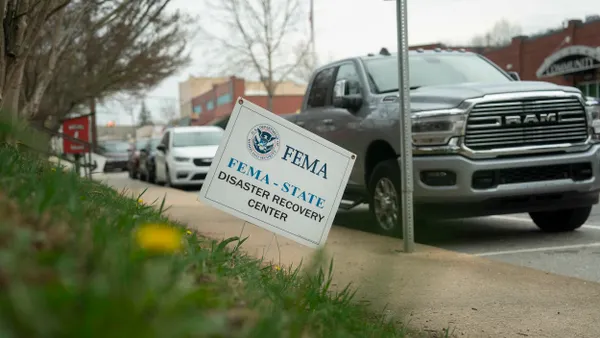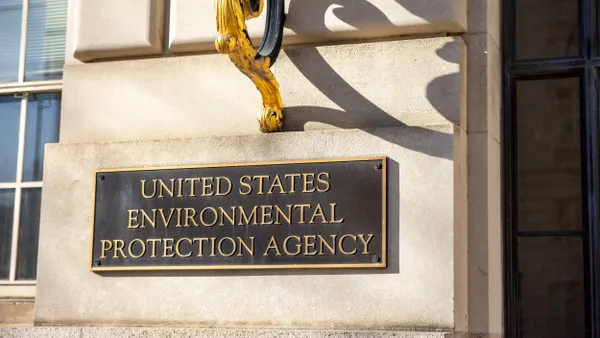Dive Brief:
- New York City Council Member Ben Kallos is introducing two bills today that he says will codify the city's "zero waste" goals politically and in the public consciousness. The first would amend the city's current building code to require the placement of receptacles labeled "landfill," "recycling" and "compost" in all public spaces.
- The second bill would make the Department of Sanitation's (DSNY) "zero waste" goal official city law. As written the bill would require 100% diversion of all "citywide" waste by 2030.
- Per that same bill, DSNY would also be required to analyze whether that goal was feasible. If not, DSNY would be required to report on recommendations for achieving the goal within 180 days of that determination.
Dive Insight:
New York recently marked the two year anniversary of its OneNYC environmental plan, including the "zero waste" goal, with an annual progress report showing incremental improvement and the establishment of a framework that could lead to greater gains in future years. While often described as "zero waste" the city's goal is to achieve a 90% reduction from a 2005 baseline. As of 2016, it had achieved a 10.9% reduction. Accurate figures aren't available for the commercial sector, which has been given a similar goal, and that is part of the ongoing conversation around implementing a franchise zone system.
Council Member Kallos maintains that the city has set a 100% diversion goal, which he doesn't believe will be enforceable under future administrations. If reelected this fall, Mayor Bill de Blasio will leave office at the end of 2021.
"I'm really concerned that the city set a goal of zero waste by 2030 without having any binding power to achieve that goal," Kallos told Waste Dive. "I can't see the city opposing this. I think the city has to support it."
Kallos is a frequent critic of DSNY's marine transfer stations — one of which is in his Manhattan district — and often raises concerns about the rising cost of waste export. The city recently announced a $3.3 billion contract with Waste Management that could run through at least 2037, though Commissioner Kathryn Garcia told Kallos in a recent budget hearing that the city will not face financial penalties for reducing its waste. Yet based on the investment in export infrastructure DSNY still sees some amount of refuse remaining a part of city life in future decades.
Bringing bins for recyclables and compost to public spaces and food service establishments could be more viable. Per city law, the DSNY commissioner does have the authority to expand commercial organics diversion requirements beyond the current categories of large generators. Other small businesses already voluntarily separate their organics and while contamination could be a challenge Kallos believes the volume would make it a worthwhile endeavor.
"Every other city I've been to has recycling and composting any place that customers are asked to dispose of their own waste and I want that for New York City," he said. "I think once we see additional source separation all the sudden the companies will realize that there is a lot of money to be made."











